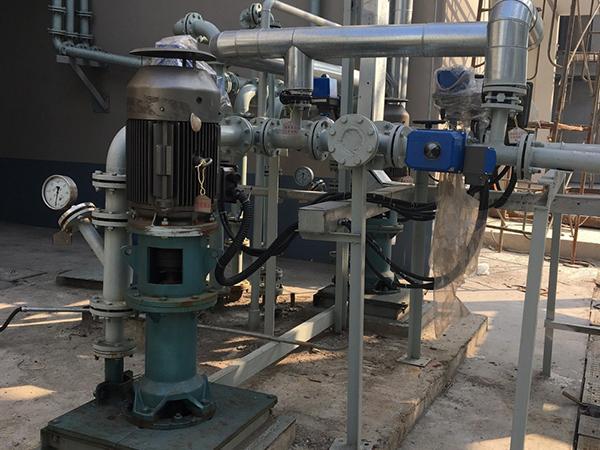TEL:
+86 13120555503
Hebrew
- Afrikaans
- Albanian
- Amharic
- Arabic
- Armenian
- Azerbaijani
- Basque
- Belarusian
- Bengali
- Bosnian
- Bulgarian
- Catalan
- Cebuano
- Corsican
- Croatian
- Czech
- Danish
- Dutch
- English
- Esperanto
- Estonian
- Finnish
- French
- Frisian
- Galician
- Georgian
- German
- Greek
- Gujarati
- Haitian Creole
- hausa
- hawaiian
- Hebrew
- Hindi
- Miao
- Hungarian
- Icelandic
- igbo
- Indonesian
- irish
- Italian
- Japanese
- Javanese
- Kannada
- kazakh
- Khmer
- Rwandese
- Korean
- Kurdish
- Kyrgyz
- Lao
- Latin
- Latvian
- Lithuanian
- Luxembourgish
- Macedonian
- Malgashi
- Malay
- Malayalam
- Maltese
- Maori
- Marathi
- Mongolian
- Myanmar
- Nepali
- Norwegian
- Norwegian
- Occitan
- Pashto
- Persian
- Polish
- Portuguese
- Punjabi
- Romanian
- Russian
- Samoan
- Scottish Gaelic
- Serbian
- Sesotho
- Shona
- Sindhi
- Sinhala
- Slovak
- Slovenian
- Somali
- Spanish
- Sundanese
- Swahili
- Swedish
- Tagalog
- Tajik
- Tamil
- Tatar
- Telugu
- Thai
- Turkish
- Turkmen
- Ukrainian
- Urdu
- Uighur
- Uzbek
- Vietnamese
- Welsh
- Bantu
- Yiddish
- Yoruba
- Zulu
Telephone: +86 13120555503
Email: frank@cypump.com
פבר . 14, 2025 01:40 Back to list
pressure pump for pipeline
Selecting the perfect pressure pump for a pipeline system plays a pivotal role in maintaining operational efficiency, safety, and reliability. It's not merely about moving liquids from one point to another; it's about ensuring that every part of the system works harmoniously and sustainably. This article delves into the intricacies that come with choosing and implementing pressure pumps for pipelines, highlighting the importance of experience, expertise, authority, and trustworthiness.
Trustworthiness is established through transparent business practices and a proven record of delivering successful projects. A good manufacturer or service provider will have a history of satisfied customers who can attest to their commitment to quality and service. Case studies and testimonials provide valuable evidence of a company's capability to deliver projects efficiently and effectively, while still accommodating the unique challenges presented by each specific pipeline system. When evaluating potential pressure pump solutions, consider conducting a thorough lifecycle assessment. This involves examining not only the initial investment in a pump but also the long-term operational costs, such as maintenance, energy consumption, and potential downtime. Experienced engineers or consultants can assist in evaluating these factors, offering tailored solutions that align with your operational goals and budget constraints. Furthermore, consideration should be given to the ecological footprint of the pressure pump system. With rising environmental concerns and regulatory pressures, selecting pumps with high energy efficiency and lower emissions is crucial. Many contemporary pumps come with eco-friendly certifications, reducing both environmental impact and operational costs. Lastly, invest in reliable monitoring and control systems to ensure real-time tracking of pump performance. Implementing SCADA systems (Supervisory Control and Data Acquisition) can provide comprehensive data analytics, which aid in preemptive maintenance and avoiding costly repairs. By choosing a system that offers robust data acquisition and remote monitoring capabilities, pipeline operators can maintain optimal performance and stay ahead of potential issues. In conclusion, selecting the right pressure pump for a pipeline is a sophisticated decision that requires comprehensive understanding and consideration of various technical, operational, and environmental factors. By emphasizing experience, expertise, authority, and trustworthiness, businesses can ensure they are making informed decisions that not only meet current requirements but are also adaptable for future challenges and advancements in the industry.


Trustworthiness is established through transparent business practices and a proven record of delivering successful projects. A good manufacturer or service provider will have a history of satisfied customers who can attest to their commitment to quality and service. Case studies and testimonials provide valuable evidence of a company's capability to deliver projects efficiently and effectively, while still accommodating the unique challenges presented by each specific pipeline system. When evaluating potential pressure pump solutions, consider conducting a thorough lifecycle assessment. This involves examining not only the initial investment in a pump but also the long-term operational costs, such as maintenance, energy consumption, and potential downtime. Experienced engineers or consultants can assist in evaluating these factors, offering tailored solutions that align with your operational goals and budget constraints. Furthermore, consideration should be given to the ecological footprint of the pressure pump system. With rising environmental concerns and regulatory pressures, selecting pumps with high energy efficiency and lower emissions is crucial. Many contemporary pumps come with eco-friendly certifications, reducing both environmental impact and operational costs. Lastly, invest in reliable monitoring and control systems to ensure real-time tracking of pump performance. Implementing SCADA systems (Supervisory Control and Data Acquisition) can provide comprehensive data analytics, which aid in preemptive maintenance and avoiding costly repairs. By choosing a system that offers robust data acquisition and remote monitoring capabilities, pipeline operators can maintain optimal performance and stay ahead of potential issues. In conclusion, selecting the right pressure pump for a pipeline is a sophisticated decision that requires comprehensive understanding and consideration of various technical, operational, and environmental factors. By emphasizing experience, expertise, authority, and trustworthiness, businesses can ensure they are making informed decisions that not only meet current requirements but are also adaptable for future challenges and advancements in the industry.
Share
Latest news
-
ISG Series Vertical Pipeline Pump - Chi Yuan Pumps | High Efficiency & Energy Conservation
NewsAug.08,2025
-
ISG Series Vertical Pipeline Pump|Energy Efficiency&Durability
NewsAug.08,2025
-
Heavy-Duty Submersible Sludge Pump | High Performance Solutions
NewsAug.08,2025
-
ISG Series Vertical Pipeline Pump - Chi Yuan Pumps | Energy Efficiency & Low Noise
NewsAug.08,2025
-
ISG Series Vertical Pipeline Pump - Chi Yuan Pumps | High Efficiency, Low Noise
NewsAug.07,2025
-
ISG Series Pipeline Pump-Chi Yuan Pumps|High Efficiency, Low Noise
NewsAug.07,2025










